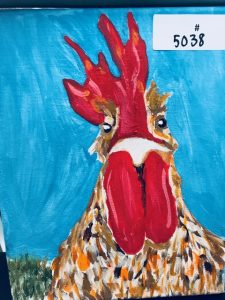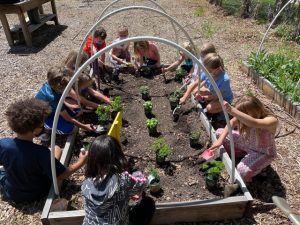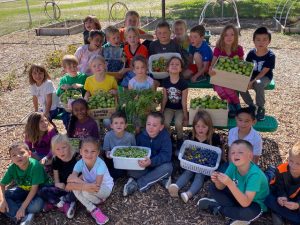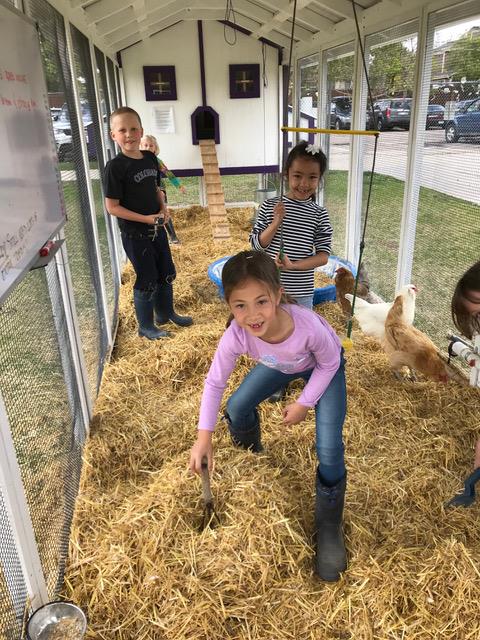by Skeeter Buck
For the past several years, Cory Elementary — its students, teachers, and parents have collaborated utilizing a school-based community chicken program and garden as a space where our students, teachers, parents, and community can gather in an extended outdoor classroom to support experiential learning. A place where nature and animals provide opportunities for our children.
School-based Community Chicken Program
Cory Elementary is one of a few schools to host chickens as a part of their education program.
When school is in session, each one of the elementary classrooms rotates students to the coop daily (with a trained community volunteer) to fulfill the responsibilities of caring for our flock; changing the water, collecting eggs, feeding, and cleaning the roosting boxes.
When school is not in session (weekends, holidays, storms, summer break), community volunteers are committed to our care team.
Our school-based community chicken program allows for the school and community to work together. Raising chickens fosters community collaborations, creates teachable moments, builds self-esteem, and instills responsibilities within its members.
Our experience over these past three years of hosting the school-based chicken program has demonstrated learning opportunities for students and families, such as:
- Equality – each classroom participates in the responsibility to care for our flock

The sale of chicken themed artwork is a fun fundraiser for the program
- Inclusive – community members are included in our care team
- Healthy – our chickens are raised on organic feed, producing organic eggs
- Supported – our active PTA funds our program
- Challenged – Students learn how to be calm and not afraid of animals
- Safe – biosecurity is a word that is taught to every 1st – 5th-grade student
- Social – chickens love humans; humans love chickens
- Emotional – our students learn about the circle of life
The other element of the program is sustainability. Our chicken coop uses solar panels to operate the circulation pump for our rain barrel watering system, supporting energy and water efficiency.
Another element of the chicken program has been a fundraising vehicle for the school auction. Our students create ‘chicken art’ using canvas posters sold at the auction, some bringing in over $300.
Cory School Garden
From planting the first seed in the spring to putting the garden to bed in November, our garden is a labor of love and teamwork between students, teachers, parents, and volunteers. As a result, Cory now has over 15 raised garden beds – enough for each classroom to have a designated bed.
This outdoor classroom is the perfect environment for our students and teachers to learn about things like:
- Soil sampling

Students transplant seedlings into their garden
- Water conservation
- Nutrients
- Nutrition
- Organic production
- Weed mitigation
- Harvesting
- Composting
- Farm to table
And so much more!
The garden is a perfect way for students to make a real connection to their environment and explore the endless opportunities available to them via independent food production. We have several programs that take advantage of the tremendous opportunities the garden provides.
Garden to Cafeteria
Each Monday, our students harvest produce from our raised garden beds and sell it to the school cafeteria to be used on the salad bar or in food made from scratch. The vegetables from our garden are grown without chemical fertilizers or pesticides. Our school garden provides more than 100 pounds of lettuce, cucumbers, tomatoes, beans, peas, peppers, radishes, strawberries, onions, zucchini, and carrots to the cafeteria each fall.
Youth Farmer’s Market
Each Friday in the fall, our students harvest from our garden and partner with Slow Food Denver to provide fruits, vegetables, flowers to exchange for donations at the student-run market on the school grounds. This event is widely attended not only by parents but by our community neighbors. The Youth Farmer’s Market closes in late October with a giant pumpkin and caramel apple sale that sells out every year.

Proud students show off the fruits of their hard work

